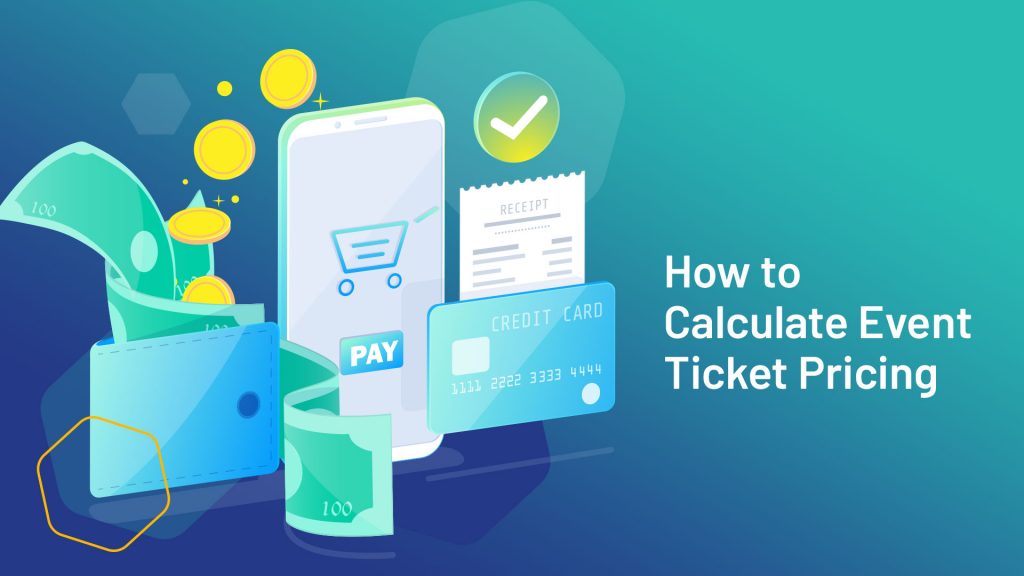
Pricing event tickets is one of the most critical—and challenging—parts of event planning. Set the price too low, and you risk not covering your costs. Set it too high, and you might discourage potential attendees. To help you strike the right balance, this guide breaks down the essential factors to consider when determining your event ticket pricing strategy.
1. Calculate All Event Costs
The first step in setting your event ticket price is understanding your total event costs. Consider both fixed and variable expenses, including:
- Venue rental
- AV and equipment rental
- Staff or speaker fees
- Marketing and advertising
- Catering and hospitality
- Permits, insurance, and security
💡 Tip: Create a spreadsheet to track all event expenses and calculate the total budget. This figure will guide your minimum pricing threshold.
2. Estimate Expected Attendance
Once you know your total event costs, the next step is to estimate how many attendees you’re expecting. Base your estimate on:
- Historical data from past events
- Venue capacity
- Industry benchmarks or market research
- Your promotional strategy and reach
Divide your total costs by your estimated number of attendees to determine a break-even ticket price—the minimum amount you need to charge per person to cover expenses.
3. Analyze the Market and Competitors
Look at similar events in your area or industry and compare their ticket prices. Consider:
- What types of events are they offering?
- What’s included in the ticket price?
- Are they using tiered or early bird pricing?
If your event offers unique experiences, exclusive content, or popular headliners, you may be able to price higher than the competition. Just be sure your event’s value proposition justifies the price.
4. Define Your Event’s Value Proposition
Your value proposition is what sets your event apart and justifies the cost to your audience. This could include:
- Access to high-profile speakers or performers
- Unique networking opportunities
- Educational takeaways or industry certifications
- Free swag or exclusive offers
- VIP experiences or meet-and-greets
Make sure your marketing clearly communicates this value to potential attendees—especially if you’re charging a premium price.
5. Use Tiered and Discount Pricing Strategies
Offering flexible pricing options can increase your ticket sales and appeal to a wider audience.
Common Discount and Tiered Pricing Strategies:
- Early Bird Tickets: Lower-priced tickets available for a limited time
- Student or Senior Discounts: Appeals to budget-conscious demographics
- Group Rates: Discounted pricing for businesses, schools, or teams
- Promo Codes: Great for affiliates, influencers, or marketing campaigns
- VIP Packages: Higher pricing with added value (priority access, freebies, etc.)
These strategies also create urgency and can help boost sales early in your promotion cycle.
6. Test and Adjust Ticket Prices
A/B testing your ticket pricing is a smart way to find the ideal price point. Try these strategies:
- Launch with an introductory price, then increase it as demand grows
- Offer a one-day flash sale to generate buzz
- Test different pricing for different ticket types or segments
- Monitor conversion rates and adjust based on demand
💡 Pro Tip: Track your sales data using your ticketing platform or Google Analytics to understand what works best.
Final Thoughts: Setting the Right Ticket Price for Event Success
Finding the perfect ticket price is a mix of data-driven analysis and understanding your audience. By carefully calculating your costs, estimating attendance, researching the market, highlighting your value, and testing different pricing models, you’ll set a price that meets your financial goals and keeps your attendees satisfied.
Remember, pricing isn’t a one-time decision—it’s an evolving part of your overall event marketing and sales strategy. Watch your ticket sales closely, gather feedback, and stay flexible.
As always if you are looking for a great event to attend you can purchase tickets HERE.
Other Articles








